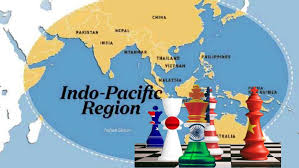by TusiTala, Staff Writer
The United States has been attentive to the concerns of Pacific Island nations as it aims to enhance its diplomatic presence in the region, according to Deputy Secretary of State Kurt Campbell. Speaking at a media briefing in Nuku’alofa during the 53rd Pacific Islands Forum Leaders’ Meeting, Campbell outlined various initiatives being implemented by Washington, including efforts related to climate change resilience, illegal fishing, education, technology, and connectivity.
He also announced a total contribution of $25 million to the Pacific Resilience Facility, which supports Forum members in accessing climate financing for adaptation, disaster preparedness, and early response projects. “Our commitment to the Pacific has been significant,” Campbell remarked, calling it “an exciting time.”
He emphasized that the U.S. has been responsive to the leadership of the Pacific Islands Forum and individual nations, aiming to align its contributions with their expressed needs.
The U.S. is one of more than two dozen dialogue partners of the Forum, alongside countries like China, the EU, France, and the UK. Since 2021, the U.S. has hosted two Pacific Islands Forum Summits at the White House, established embassies in Solomon Islands, Tonga, and Vanuatu, released its first U.S.-Pacific Partnership Strategy, and announced over $8 billion in new funding for the region.
Additionally, the U.S. has recognized the Cook Islands and Niue as sovereign states, developed diplomatic ties with them, expanded USAID offices in Papua New Guinea and Fiji, reintroduced the Peace Corps to Fiji, Samoa, Tonga, and Vanuatu, and increased consular services for easier travel.
Campbell noted that the U.S. is eager to collaborate with both traditional partners like Australia and New Zealand as well as newer ones such as Japan, South Korea, India, and the UK. He expressed a desire for the Pacific Islands Forum to grow stronger, stating, “We believe that enhancing regional institutions in the Pacific is critically important, and we are dedicating resources and attention to these efforts.”



